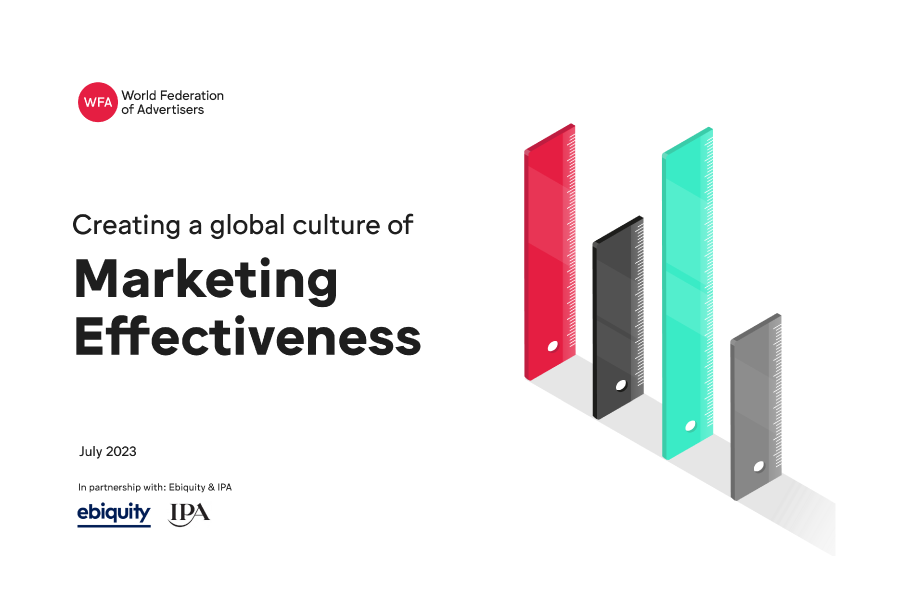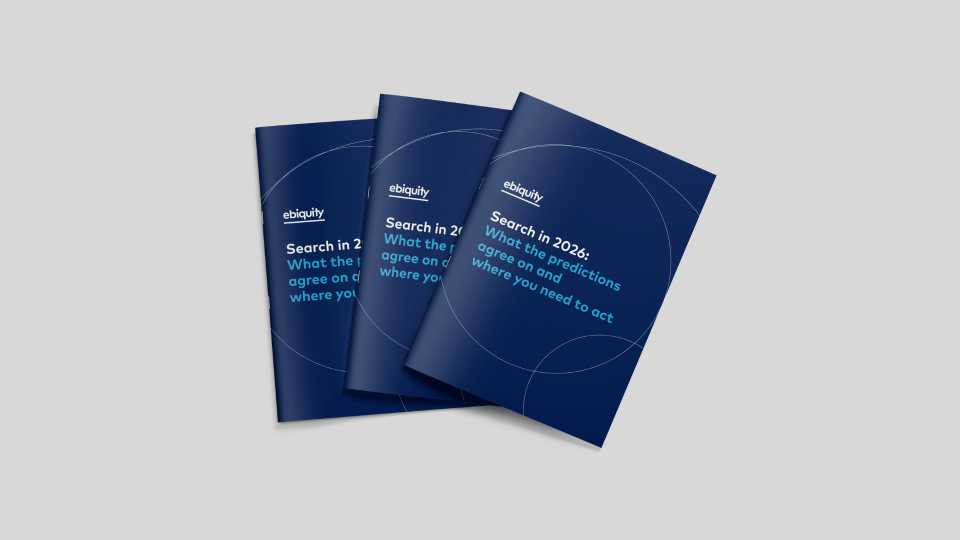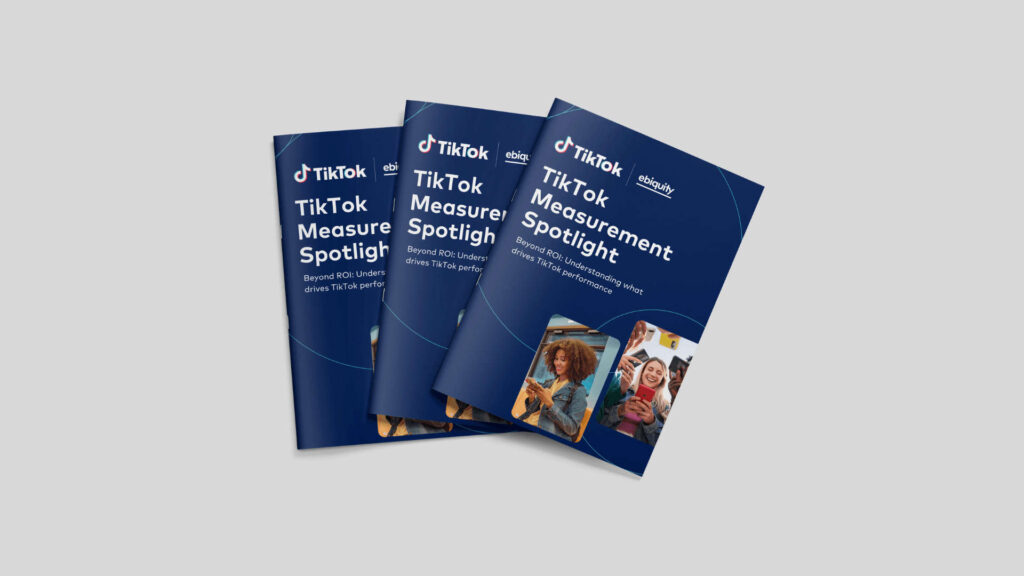Marketers worldwide are embracing the journey towards marketing excellence as they tackle the challenges of driving effectiveness in their marketing strategies. A groundbreaking new study conducted by the World Federation of Advertisers (WFA) – in partnership with Ebiquity and the Institute for Practitioners in Advertising (IPA) – has uncovered valuable insights rooted in best practice which can help to drive positive change.
The study quantified marketing effectiveness culture across a wide variety of different advertisers, reporting an overall score of 6.5 out of 10, averaged across four core components. Two components have a more positive influence on building a stronger effectiveness culture, with People rated at 7.3 and Focus 7.0. But this was offset by two areas where culture is falling behind: Data, Tools, & Measurement rated at 6.4, and most alarmingly Process at just 5.7.
The “Creating a Global Culture of Marketing Effectiveness“ report is based on a survey conducted in partnership with 27 national advertiser associations, including AANA (Australia), ACA (Canada), and UPA (Italy). The survey findings were reinforced by take-outs from the WFA’s Forum Connect meetings in Amsterdam and Singapore, and it offers a roadmap for improvement to boost effectiveness in the 2020s.
Matt Green, Director of Global Media at WFA, commented: “The results of this study present a tremendous opportunity for growth. As marketers, it’s vital to focus not only on delivering plans but also on understanding the ‘why’ behind our activities. Prioritizing measurement and understanding the value of our marketing efforts – both in the short and long-term – will pave the way for true effectiveness.”
The study identifies five key areas for improvement:
- Sharpen the Process: Emphasize understanding objectives and results to create an effectiveness roadmap, fostering organizational awareness and alignment with objectives.
- Cascade a Comprehensive Measurement Framework: Establish a well-defined measurement framework that assesses both short-term and long-term impacts of marketing activities.
- Demand and Implement Better Tools: Invest in predictive tools offering precision and granularity for essential marketing effectiveness use-cases.
- Create Better Insights: Enhance credibility by aligning marketing effectiveness insights with the decision-making rhythm of the business through increased collaboration across teams.
- Strengthen Collaboration: Foster improved collaboration between teams, such as Marketing with Finance, Insights with Insights, and Procurement with all departments, to harness the full potential of marketing effectiveness.
Additionally, the study highlights the importance of a clearly defined measurement framework to address business challenges. Encouragingly, 41% of respondents agree they have this framework in place. However, among respondents with Insights/Effectiveness or National roles, further improvements are needed, indicating a disconnect in implementing the right framework. Organizations are encouraged to empower their teams, especially those closer to data and the market, to embrace and feel confident in the measurement framework.
With 55% of respondents expressing confidence in tools to explain past marketing performance, and 34% expressing confidence in predictive tools, there is an opportunity to develop tools that predict future marketing success more effectively. By doing so, organizations can strike the right balance between efficiency and effectiveness, preventing a singular focus on efficiency alone.
Mike Campbell, Managing Principal, International Analytics at Ebiquity, underlines this finding: “To truly boost marketing effectiveness in the years ahead, organizations need to take action in these key areas. By understanding the ‘why’ behind their marketing activities and prioritizing comprehensive measurement, companies can create a more holistic culture of marketing effectiveness. Moreover, fostering organizational teamwork and integrating the Insight function into the marketing decision-making rhythm will result in a more collaborative and successful marketing effectiveness culture.”
This new study serves as a comprehensive guide for organizations seeking to elevate their marketing effectiveness strategies and achieve sustainable growth and success in the years ahead.









